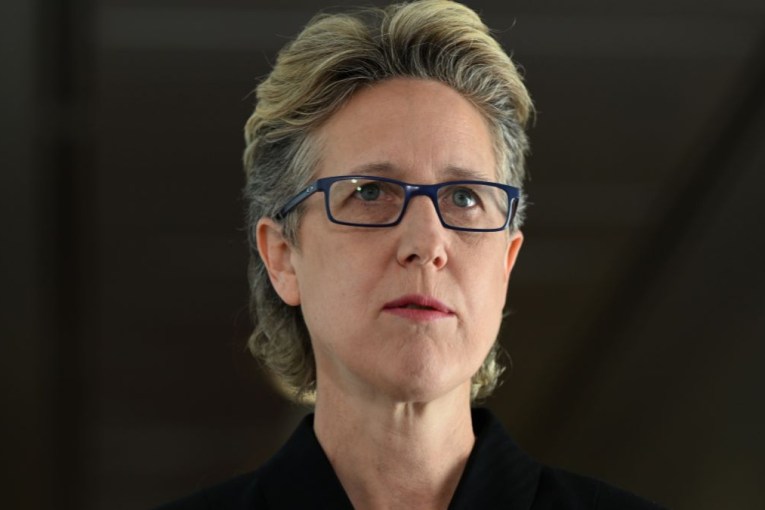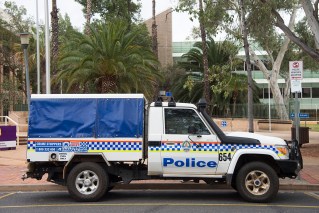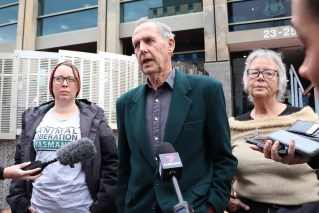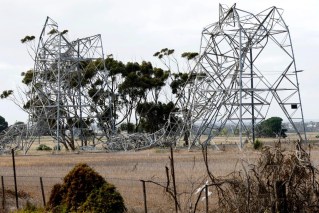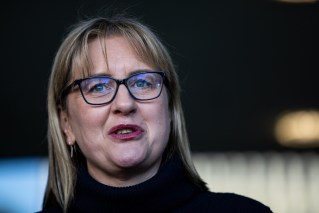Coronavirus vaccine black market could threaten Australia


Experts have warned of scams around Australia's vaccine rollout, as fraudsters seek to capitalise on the pandemic. Photo: AAP
Australia could find itself at the mercy of a coronavirus vaccine black market, the Home Affairs department has warned, as rollout delays and brand preference provide fuel for fraud and scams.
Labor has demanded the federal government do more to proactively stamp out “vaccine fraud”, with MP Anne Aly noting the black market is already teeming with vaccines and fake vaccine certificates.
“It’s inevitable opportunists will continue to try and take advantage of the pandemic in Australia,” Dr Aly said.
Vaccine maker Pfizer has also raised concerns of increased fraud around vaccines, with the Attorney-General’s department worried about “fake Pfizer”.
Dr Aly, a security and counter-terrorism academic before entering politics, was behind the Parliament’s Joint Committee on Law Enforcement opening an inquiry into ‘vaccine-related fraud and security risks’.
Numerous submissions from the Home Affairs and Attorney-General departments, the Australian Competition and Consumer Commission, and Pfizer have warned that, while vaccine and COVID fraud has thus far been low in Australia, this could change if rollout delays continue.
“The risk of counterfeit vaccines, such as fake Pfizer vaccines, is potentially exacerbated by concerns about the AstraZeneca vaccine,” said the Attorney-General’s department in one submission.
Home Affairs said vaccine scams were currently – and expected to remain – low, but it was “possible” some people “may seek to acquire specific brands or fast-track their own vaccination”.
The ACCC’s Scamwatch service received more than 6400 COVID-related scam reports, totalling nearly $10 million in losses, in the past year.

Concerns over certain vaccines, or preferences for others, could lead to vaccine fraud. Photo: AAP
Scamwatch is now specifically warning Australians about vaccine fraud, detailing overseas scams like selling fake vaccine appointments or COVID tests, and even door-to-door fraudsters administering fake vaccines.
The ACCC’s submission noted it had received about 50 reports of Australian scams related to vaccinations, an amount that may well increase as the rollout progresses.
Interpol has warned of global criminal trends in the theft of legitimate COVID vaccines, or illegal advertising of fake vaccines.
Dr Aly wants the government to do more to warn Australians of vaccine fraud.
She is fearful that, as vaccine demand increases, scams too may increase if Australians struggle to book an appointment.
“We can’t be talking about vaccine safety without also talking about the security of the vaccine rollout,” she told The New Daily.
“A targeted advertising campaign to encourage vaccine take up, should also include information about possible vaccine fraud including phishing emails or texts.”
In its submission, Pfizer conceded the pandemic created an environment where “there will be an increase in the prevalence of fraud, counterfeit and other illicit activity” around vaccines.
The Attorney-General’s department said that sudden changes to the vaccination program, like the overhaul announced to make AstraZeneca the preferred vaccine for over-50s, could create “additional opportunities for fraudsters”.
“If not proactively disrupted, vaccine-related scams could undermine the speed and efficacy of Australia’s vaccination program,” the department said.
Home Affairs’ submission said it hadn’t intercepted any illicit vaccine shipments entering Australia, but was “closely” monitoring.
The department said it was possible that, as supply of vaccines increases overseas, people may look to order certain brands through an internet black market.
In its submission, the Cyber Security Co-operative Research Centre flagged Australia could be “particularly vulnerable to illegal COVID-19 black markets with one of the world’s highest concentrations of dark net drug vendors per capita”.
It said there had been a “sharp surge” in COVID scams worldwide since vaccination programs had begun around the world, and flagged an “urgent need” for the Australian government to address online misinformation and fraud.
Roderic Broadhurst, professor at the Australian National University’s School of Regulation and Global Governance, said fake vaccines and documents like negative COVID test results were available to buy on many shadowy online marketplaces.
His submission to the inquiry said “supply shortages” were a breeding ground for scams, noting numerous websites purporting to sell leading vaccine candidates were set up to harvest personal information from buyers.
Professor Broadhurst also said such products were being advertised on social media channels like Facebook and WeChat.
Deakin University’s Centre for Supply Chain and Logistics said it was “highly likely” that cyber criminals or even “hostile foreign nations” could exploit any disruptions to Australia’s vaccine rollout by selling fake vaccines.
“The way vaccines work and the minimal risks associated have not been clearly understood by the general public and extra effort should be undertaken by governments at all levels to educate the public to reduce the spread of misinformation,” its submission read.
Other submissions raised concerns about fake ‘vaccine passports’ and or vaccination proof documents, potentially as anti-vaxxers refuse a jab but wish to access the extra freedoms or travel privileges vaccinated people may potentially enjoy.
The Attorney-General’s department said it was working on providing advice on scam risks, and running ‘counter-fraud’ workshops, but Dr Aly said more needed to be done.
“It’s not just about whether the vaccine is safe to take, but also whether the security around vaccine production, storage and supply is sufficiently robust so everyone can have complete confidence,” she said.
The inquiry remains ongoing, with plans to hold public hearings.
